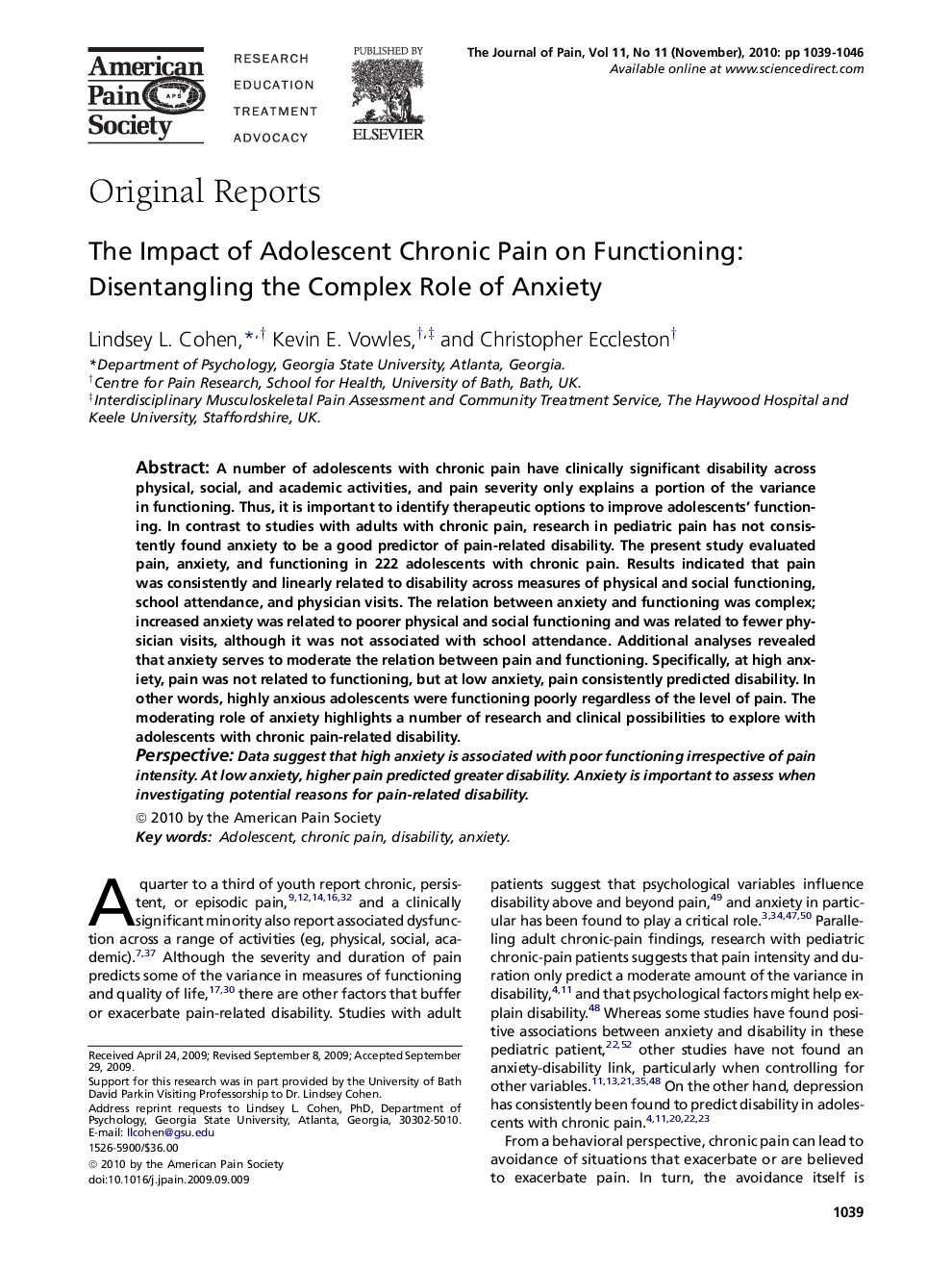| Article ID | Journal | Published Year | Pages | File Type |
|---|---|---|---|---|
| 2729424 | The Journal of Pain | 2010 | 8 Pages |
A number of adolescents with chronic pain have clinically significant disability across physical, social, and academic activities, and pain severity only explains a portion of the variance in functioning. Thus, it is important to identify therapeutic options to improve adolescents' functioning. In contrast to studies with adults with chronic pain, research in pediatric pain has not consistently found anxiety to be a good predictor of pain-related disability. The present study evaluated pain, anxiety, and functioning in 222 adolescents with chronic pain. Results indicated that pain was consistently and linearly related to disability across measures of physical and social functioning, school attendance, and physician visits. The relation between anxiety and functioning was complex; increased anxiety was related to poorer physical and social functioning and was related to fewer physician visits, although it was not associated with school attendance. Additional analyses revealed that anxiety serves to moderate the relation between pain and functioning. Specifically, at high anxiety, pain was not related to functioning, but at low anxiety, pain consistently predicted disability. In other words, highly anxious adolescents were functioning poorly regardless of the level of pain. The moderating role of anxiety highlights a number of research and clinical possibilities to explore with adolescents with chronic pain-related disability.PerspectiveData suggest that high anxiety is associated with poor functioning irrespective of pain intensity. At low anxiety, higher pain predicted greater disability. Anxiety is important to assess when investigating potential reasons for pain-related disability.
